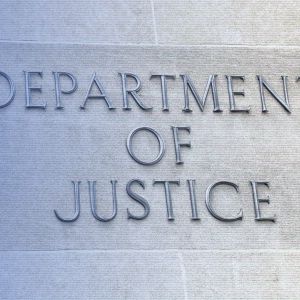The US Department of Justice (DOJ) wants to review the repayment process for digital assets investors who lose money to fraud and other criminal activities. An April 7 memo from the DOJ acknowledged that these investors are not getting the full value of their digital assets. According to the memo by the Deputy Attorney General (DAG), several crypto firms entered bankruptcy in 2022, causing investors losses. The memo noted that losses in some cases were due to fraud and theft, and the DOJ recovered the proceeds of this criminal activity, including digital assets, through forfeitures. However, it observed that the increase in the value of digital assets over the period was not reflected in the repayment to the victims, because regulations that require the return of forfeited assets to victims should be at their fair value at the time of the fraud. It said: “However, as a result of regulations, some digital asset investor victims have only been able to recover the value of their digital assets at the time the fraud was perpetrated.” The memo noted that this issue deserves to be addressed because it does not favor investors who bear all the risks of the loss. These investors do not benefit from the increase in the value of the digital assets when they could have possessed the assets if not for the loss. DOJ wants to evaluate the bankruptcy rules and propose changes In order to address this, the DAG has now directed the Office of Legal Policy and the Office of Legislative Affairs to evaluate the issue and propose regulatory and legislative changes that will improve asset forfeiture efforts in the digital sector. It is uncertain what proposals the DOJ will come up with to resolve this issue. A possible solution could be to return assets in kind, which could be risky as assets could decline to zero. Implementing any proposed changes could also prove tricky, as the Bankruptcy Code requires Congress to amend. Still, the department can issue regulations or rules. Ironically, the rule the DOJ referenced in its memo actually exists to protect investors against losses. It requires that losses returned to victims be at fair market value as at the date of loss, and where there are several victims, each will get a portion of the assets on a pro rata basis. However, the rule does not favor crypto investors as the value of crypto assets can increase, and the pro-rata refund means those who invested in valuable projects such as Bitcoin get the same as those who invest in memecoins. Crypto investors welcome the development Meanwhile, many in the crypto community consider the memo a good move, even if it is only guidance for the DOJ staff and does not have the force of law. Investors affected by the bankruptcy of crypto firms such as FTX, Voyager, Celsius, Genesis, Blockfi, and Gemini believe this was long overdue. FTX creditor champion Sunil Kavuri highlighted the development in a post on X, and followers’ comments show that they support it even though they believe it might be too late to save victims of previous crypto bankruptcies. One user, Mr Purple on X, added that the Bankruptcy Code needs to be reformed to account for the unique nature of digital assets. He said: “Seriously (and critically) this needs also include a reform to the bankruptcy code to account for the unique nature of digital assets that may become subject to or inclusive of a bankruptcy proceeding.” With the majority viewing the idea as a common-sense move, all eyes are on the DOJ to see how it will modify the asset forfeiture rules to accommodate the crypto sector. Cryptopolitan Academy: Coming Soon - A New Way to Earn Passive Income with DeFi in 2025. Learn More

















